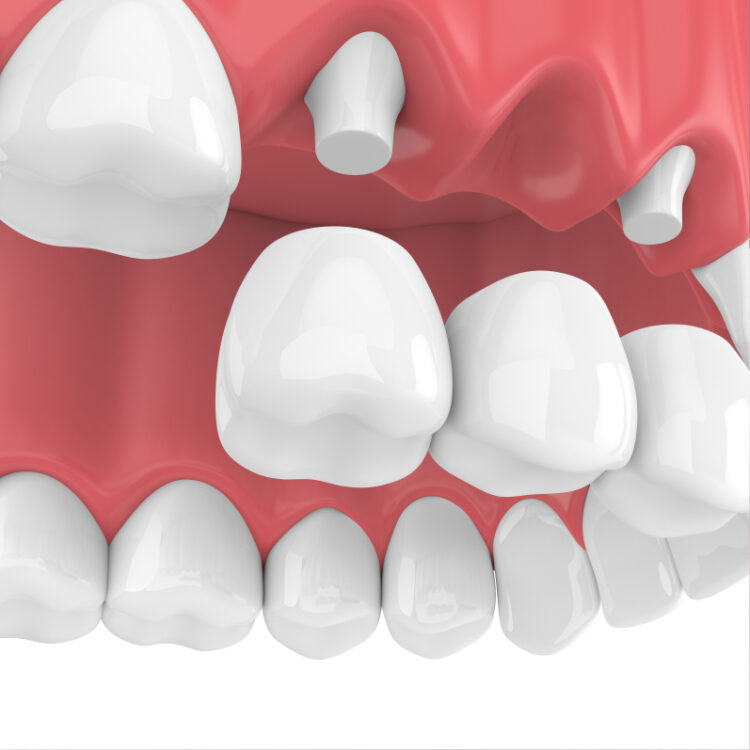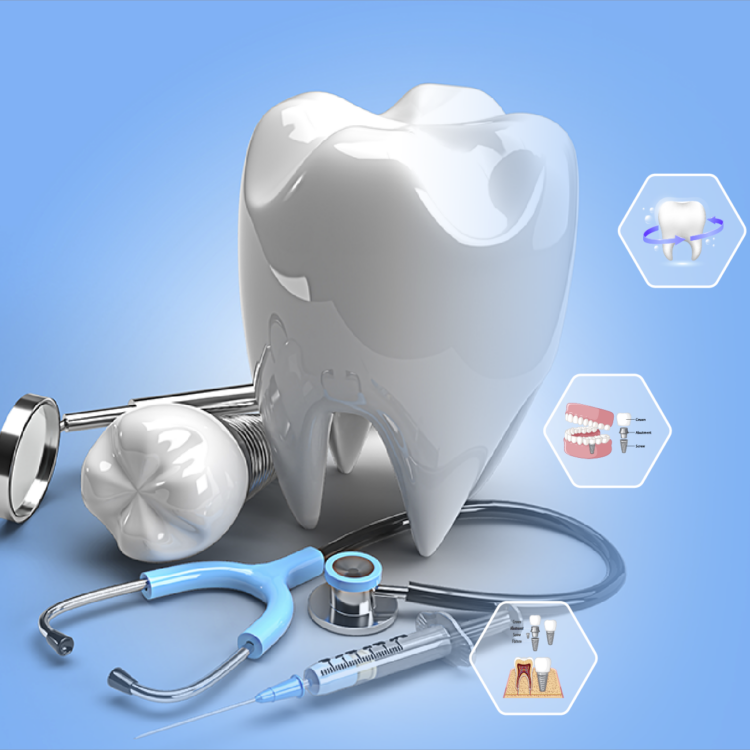
PROVIDE THE BEST NATURAL LOOK FOR LESS
Dental Crown
Ceramic crowns or dental veneers is a method of prosthodontics dentures crafted from high quality materials alloy or dental porcelain, shape, size and color similar to real teeth, but hollow inside.
Your dentist will numb the tooth and gum tissue around the tooth. The tooth receiving the crown is then reshaped along the occlusal surface and sides to make room for the crown.
Usually this process requires 2 visits to the dental office. Dental implants keep adjacent teeth stable.

Toothache
Tooth pain can come from many different issues, general examination normally can help find out the the causes.Chipped, Broken Tooth
Chipped tooth can be treated by pasting esthetic ceramic or porcelain dental restorations.Tooth Decay, Periodontal
We use state-of-the-art technology to detect early tooth decay to help treat & preserve teeth.Yellow Stained Teeth
Whitening material is painted onto your teeth. Then a light or laser is shone on the teeth to activate the chemical. Allows us to whiten your teeth up to 8 shades.Counseling For Dental Health
Includes X-Rays of the Entire Mouth and treatment plan
Discover & Cleaning
Full Mouth Cleaning and Check for Cavity
Deep Teeth Cleaning
Whitening Laser
Whitening comprehensive in-one exam
DENTAL CROWNS OR IMPLANTS?
PORCELAIN CROWNS
This is the traditional "fixed denture" technique, which is widely used all over the world. With this technique, the doctor is forced to grind the real teeth located next to the missing teeth into small pillars. After that, a porcelain bridge (consisting of many porcelain crowns attached to each other) will be wrapped/captured on top of the abutment to complete the restoration.
Advantages:
• Cost of implementation is lower than implant.
• Very aesthetic, porcelain bridges look exactly like real teeth, so people can't recognize them as dentures.
• Bridges are very strong, durable and have a greater bearing capacity than real teeth. As a result, the chewing function of the teeth is completely restored.
Cons:
• Injury to real teeth that are still healthy.
• Failure to prevent jaw bone loss after tooth loss.
• After a period of use, the abutment may be weakened, causing the bridge to loosen and the chewing function to decline.
BOOK AN APPOINTMENT NOW TO GET FREE CONSULTATION BY OUR BEST DENTIST.





